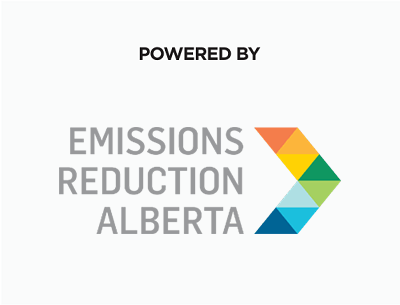About the Competition
The Reducing Environmental Footprint Technology Competition was designed to advance technology solutions for high-priority environmental challenges across the oil and gas industry with the intent to export technologies internationally and for application within Canada’s industrial sector.

Competition Focus Areas
Projects were assessed for their ability to demonstrate a clear pathway to commercialization and provide significant environmental benefits.
The competition was open to breakthrough technology solutions aligned with one or more of the following technology focus areas:
Water Technology Development:
Solutions for water challenges relevant to the oil and gas industry, including but not limited to:
Water treatment technologies addressing input water quality aspects such as total dissolved solids (TDS), organics, total suspended solids (TSS), turbidity, grease, oil, silica, etc.
Operational excellence solutions such as novel instrumentation, process control, online analyzers, surface leak prevention, asset integrity assurance, tank inspection and cleaning technologies, feedwater production efficiency improvements, and incorporation of artificial intelligence, machine learning, augmented/virtual reality, and other novel digital solutions.
Alternative steam generation technologies such as steam from alternative and recycled feedwaters.
Technologies to improve the quality and increase reuse of disposal process streams, including reducing oil and grease, TSS, organics, etc., minimizing impacts to groundwater quantity and quality.
Methane Emissions, Monitoring, Quantification, and Abatement:
Cost-effective methane emissions detection, quantification, monitoring, reporting and mitigation technologies from upstream, midstream, downstream, and transportation of oil and gas to help the industry meet its 45 per cent methane emissions reduction target, including but not limited to:
Methane mitigation from oil and condensate tanks, pneumatic devices, compressor seals, dehydrators, chemical pumps, and wells surface casing vent flow.
Cost-effective and accurate methods incorporating sensors combined with digital platforms to help in methane detection, quantification, monitoring and reporting.
Land and Wellsite Reclamation:
Solutions for land management and retirement of inactive oil and gas assets that involve accelerating timelines to closure, reducing costs, and ensuring sustainability in the methods selected for environmental management. Example technologies and best practices include but are not limited to:
Developing fit-for-purpose technologies and best practices.
Solutions that support liability management and strategic planning of closure activities.
Onsite or offsite remediation solutions.
Advanced data gathering, analytical techniques and platforms that underpin the objectives of this technology focus area.
Novel Hydrocarbon Extraction:
Novel solutions for accessing and producing hydrocarbons with less environmental footprint, including but not limited to:
Thermal, solvent, chemical or CO2 enhanced oil recovery (EOR) projects in heavy oil reservoirs.
Gas, CO2, cyclic injection, or other floods that minimize decline or minimize re-fracturing or down-spacing in light/tight reservoirs.
Solvent processes or subsurface heat generation for in situ oil sands.
Material handling, aqueous and non-aqueous extraction or other technologies in mined oil sands reservoirs.
Downhole treatments that can be applied to restart/reinvigorate shut-in wells.
Production processing infrastructure, well architectures/completions, and artificial lift in all reservoirs.
Funding Distribution
Funded Projects
| Lead Applicant | Project Title | Funding From CRIN |
|---|---|---|
| Total: | $0 million |